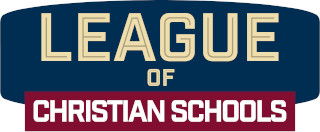Student Assessments
“If you can not measure it, you can not improve it.”
Assessments
Verifiable gains in student performance over time is a key indicator of a quality instructional program.
School improvement has historically depended on quality assessment to help educational leaders focus on school changes that bring higher levels of excellence through increased student performance. LCS is committed to providing quality assessments designed to help administrators evaluate improvement in students as well as staff. As schools are committed to advancing the Kingdom of God, it is also important that schools measure spiritual growth as well.

Which Test Should A Christian School Use?
Below are descriptions for several different tests that are available for Christian Schools to use. Remember that longitudinal scores and student achievement gains are more obvious when a school uses the same assessments year after year.
BASIC ACHIEVEMENT SKILLS INVENTORY (BASI)
Available for grades 3-12, this nationally normed test does not have any special requirements on who can administer it. The BASI covers math, reading, and language (it does not cover science, social studies, or study skills). It is a timed test, and takes about two hours to administer.
BRIGANCE DIAGNOSTIC INVENTORIES
Especially valuable for students with special needs, this test is a long, in-depth assessment, routinely used in public schools to develop an IEP. The Yellow Brigance covers birth to developmental age 7; the Green Brigance covers grade levels Pre-K through 9.
IOWA TEST OF BASIC SKILLS (ITBS; HIGH SCHOOL VERSION – ITED)
This is a top-rated, nationally standardized test designed to evaluate thinking skills. It is very similar to the Stanford Achievement Test, except that it is a timed test, permits greater flexibility for students taking a test out of grade level, and permits a wider grade range of students to be tested at the same time. Administrators must hold a bachelor’s degree.
Taking 2-3 days to administer, the Iowa can be given to grades K-12 and can be coupled with a cognitive test called the CogAT. The ITBS tests listening skills through grade 2, and has the option to cover science, social science, and reference skills for grades 1-12. Grades 8-12 can also take the Interest Explorer, a test that asks about 180 questions. This information is combined with the test results to suggest several fields of study for higher learning and/or employment that would be most appropriate for that student.
KAUFMAN TEST OF EDUCATIONAL ACHIEVEMENT (KTEA-II BRIEF FORM)
The KTEA-II is an individually administered, normed, and standardized assessment of academic achievement for ages 4 through 90+. It is not a timed test. The test administrator must be qualified.
The Achievement Battery (Brief Form) is part of a comprehensive assessment for cognitive and achievement measurement widely used by many professionals and school systems. The Brief Form measures reading ability with word reading and passage comprehension, and math ability with applied problems and computation. It also contains a spelling and written language assessment.
Like the Woodcock-Johnson, the KTEA-II does not have multiple-choice items. Most questions are asked orally, with the examiner recording student responses. This test format is often easier for students above grade two with expressive-language or vocabulary delays.
STANFORD ACHIEVEMENT TEST (SAT-10; HIGH SCHOOL VERSION – TASK)
This is also a top-rated, nationally standardized test. The Stanford tests listening skills through grade eight, and includes the scores from science/social studies in the Complete Composite score.
The SAT-10 takes 2-4 days to administer depending on the students. This test may be given to grades K-12 and along with an optional cognitive test called the OLSAT. The SAT gives the option to cover science, social science, and reference skills for grades 1-12.
TERRA NOVA/CALIFORNIA ACHIEVEMENT TEST (CAT)
This test is popular because there are no qualifications necessary to administer it. However, this test is the reincarnation of the California Achievement Test.
There are two version of this test available:
- CAT/6 (also known as TerraNova 2nd Edition) normed in 2005
- TerraNova 3rd Edition, normed in 2011.
The TerraNova Comprehensive Test of Basic Skills (CTBS), like other tests, has the option to test science, social science, and reference skills for grades 1-12.
WIDE RANGE ACHIEVEMENT TEST (WRAT)
Although this test can be completely administered in 30-45 minutes, it is extremely accurate. Since the test is so short, it works especially well as an admission test and for children with ADD.
WOODCOCK-JOHNSON TEST TESTS OF ACHIEVEMENT (WJ3)
The Woodcock-Johnson must be administered one-on-one (no group testing). It is used widely in school systems to determine eligibility for learning disabilities as well as for gifted programs. This test provides flexibility; the proctor has 20+ subtests to choose from and can combine these various subtests to meet any special testing needs. The test has oral sections, written sections, and timed and untimed sections–it is not a multiple choice test. The WJ3 can be used for ages 4 through adult.
Did you know that the Stanford 10 has been the most widely used tool in achievement testing since 1922? Now you can be even more confident about your placements and instructional planning with the Stanford 10 2018 norms update. Updated norms allow for the most current comparison of student performance against a contemporary representative national sample.
In addition to updated norms, the Stanford 10 Achievement Test series provides:
- Online (grades 3–12) and paper (grades K–12) administration options
- Items designed to measure up to four achievement parameters: content cluster, process cluster, cognitive level, and instructional standard
- Complete, Basic, and Abbreviated test battery options to fit your school’s testing needs
- Reporting options that include Lexile® Measures as well as an Achievement/Ability Comparison (AAC) Score when administered with
the OLSAT®8 - An improved work flow for submitting tests and requesting reporting services
- Support materials for teachers, parents, and students



